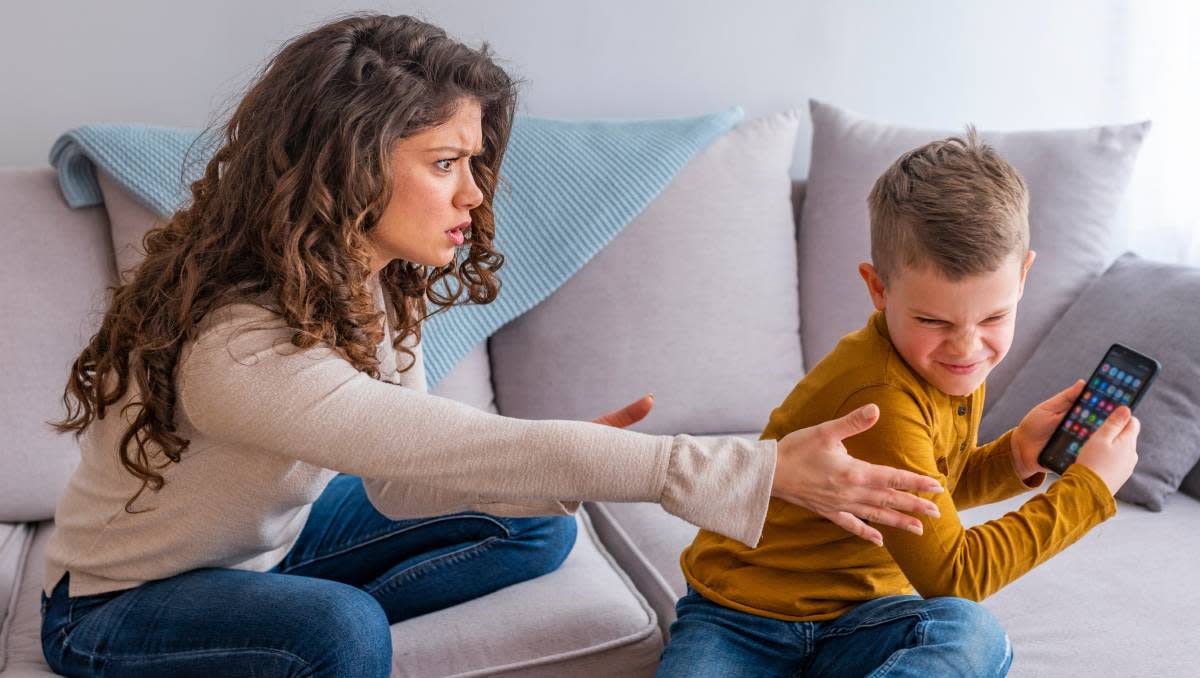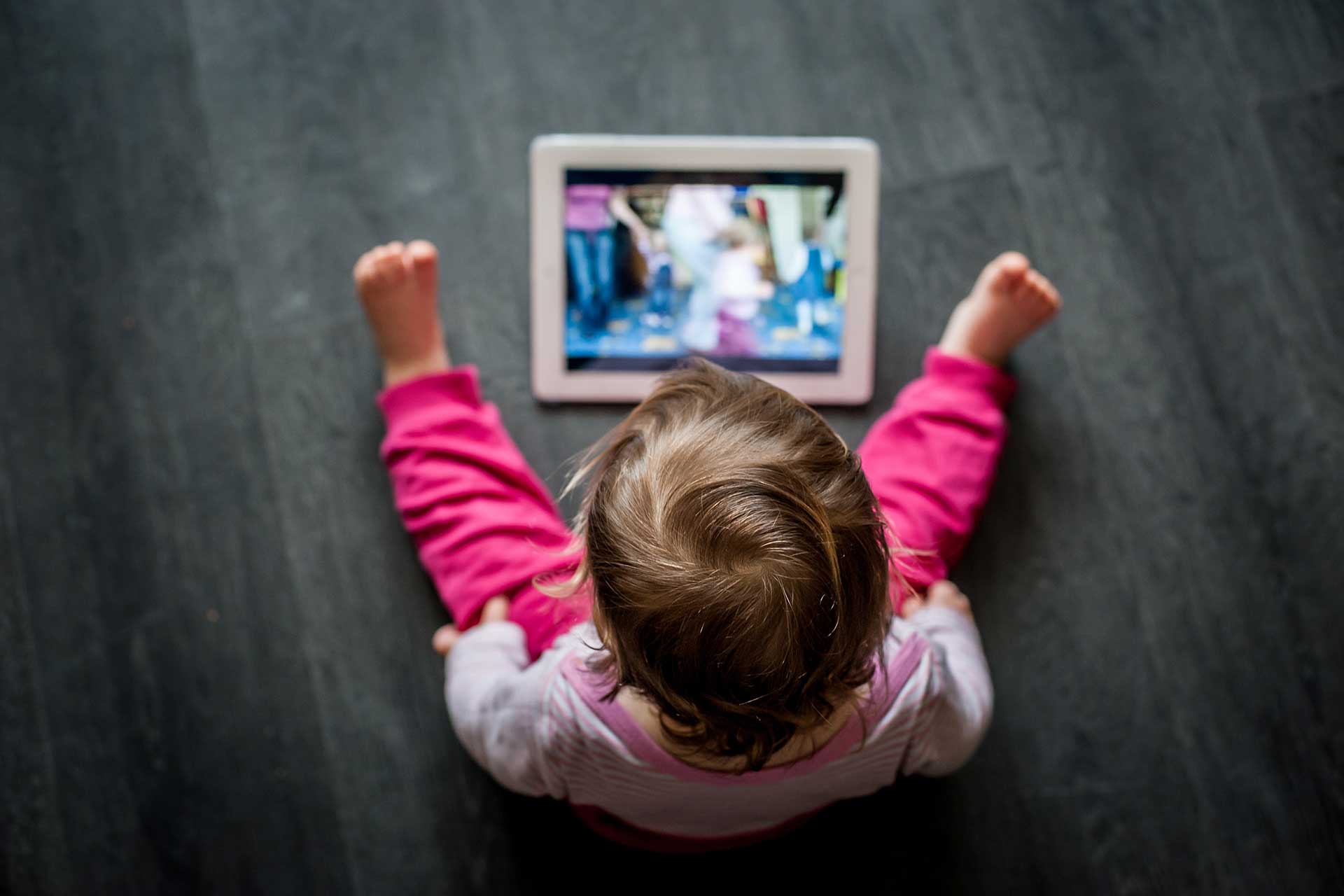Psychological therapies for children vary significantly, and they mostly shed the light on how a little child’s behavior may inadvertently or unconsciously ‘encourage’ some troublesome attitudes and undesirable actions. These punishments usually increase the occurrence of negative attitudes and behaviors. Amina Diab’s efforts are centered on discovering ways to control screen time most healthily, as the impact of increased screen use on children’s learning and growth has now become a public health issue. She helps through positive discipline, a unique approach to parenting that appears to go against the grain. Amina Diab is raising awareness on how to use positive reinforcement practices to promote good behavior while effectively easing off undesirable behavior. We sat down at ‘Maadi Psychology Center’ in Zayed, with the child psychologist, and parent coach to discuss the matter.

Can you tell us more about yourself?
I love kids, basically everything about them. I was always intrigued by their behavior and curious about understanding the nature of their manners. Though it wasn’t something I knew I’d be doing for a living, my prior participation in orphanage institutions piqued my interest in psychology where I interacted with autistic kids and other congenital malformations.
During my graduation year at college, I realized that this was not what I wanted for myself. That if I am going to graduate and leave, I must leave with a purpose. I graduated with a bachelor’s degree in Business Administration and Psychology from Cairo’s American University a year early. Then applied for a master’s degree in Child Psychology in another country. But since I was expecting a baby, I opted to pursue additional coursework and online certifications. I keep on studying to this day because I believe that the day I stop learning, is the day I perish. After that, I chose to engage in disciplinary studies so that I could help the parents and the kids together while guiding families on how to implement effective regulation in the household, and possibly all communicative institutions.
How did you get into working with children and families? Have you been in this field for a long time?
I have been doing this for years now. I didn’t start working with families and parents until I became one myself. I have a master’s degree in Child and Adolescent Psychology, so my focus was mainly on children alone. I had all the theories, regulations, and methods that would allow me to take care of my child perfectly, but none was mentioned in the textbook on how to take care of myself as a mom. And since it’s a never-ending cycle, you can’t pour from an empty cup. Parents must understand how to take care of their mental and physical health to be able to fully support their children. Accordingly, I decided to take on the concept of working on both. It’s a mutual collaboration to encourage the parents and empower them with the proper tools. All to know how to discipline their children’s behaviors and be able to take care of their health, especially with social media today and its ever-increasing addiction. It’s about loving and respecting your youngsters, enabling them into becoming strong as well as independent, and developing their connection via affection instead of guilt.

What are some common behavioral problems that you treat in children?
Easy, stubbornness. That is the most common complaint I come across. Defiance and stubbornness are tricky to handle properly. However, it is common for children to test boundaries at some point in their lives. Deliver a little “when…” then a little reminder when your child is stubborn. If your child continues to disobey after the notice, provide a result. Your youngster will listen very carefully the very first time you talk if you are consistent. Of course, there are some other spectrums, like depression or solitude, which I conduct therapy sessions for because it requires much work.
How do you help the parents overcome anxiety along the process? What tips can you provide to help the parent be at ease?
The most important thing is transparency, to speak their minds and address all the problems without hindering any. And the other way around – to listen to what I have to say frankly to assess the nature of the situation we are dealing with. And hence, be able to take simple yet effective steps towards a healthy behavior.
Have the children’s behavior in quarantine changed drastically?
Families’ lives were abruptly and drastically altered. In the household, parents’ academic roles for their children have become even more important than before. Only their families are present when kids need extra tutoring, and they foster good progress and new learning opportunities for youngsters. Related to this, it all comes down to the children’s social skills. To initiate a play, or simply start a conversation. Not only that, but anxiety has increased as well especially separation anxiety.
How do you assess which therapy is suitable for a child?
I use various tools depending on what the child needs at that point. By tools, I mean approaches to therapy. Therapy is such a huge umbrella under which there are plenty of therapeutic methodologies that fall. They differ according to the nature of the problem as well as the age of the child. For instance, play therapy is tailored for kids up to age nine, whilst cognitive behavioral therapy can be practiced on older kids. When dealing with kids and teens, I appreciate and prioritize building a relationship with parents and involving them in the activities I perform with their youngsters when and where appropriate. This collaboration is frequently critical to the process and necessary for change to occur.

Reports and research showed that the children’s active hours on social media have increased in the past months, how did that affect them?
Resisting screen-time limitations is a typical behavioral and developmental issue. All that much screen time isn’t healthful, regardless of whether your youngster yells when parents tell them to turn off the Television or plays games on your mobile when you’re not around. The negative results of extensive screen time on children’s growth and wellbeing have become a health concern, and researchers are constantly working to identify solutions to reduce screen time. Parental complicity and regulation of children’s screen use are linked to decreased screen time in terms of parenting behavior. A parent cannot simply tell their children to loosen the devices while having theirs attached to their hands 24/7, parents should set by example. Much research has said that the forms of screen addictions today can be easily compared to that of drugs’, intense. That’s why when parental reinforcement happens, you see extreme behavior and resistance on the children’s side. You must expect that and know there will be some withdrawal symptoms. All parents should be patient yet persistent, no matter how long or how many times kids nag and throw tantrums, parents must stick to their practices until they are respected.



